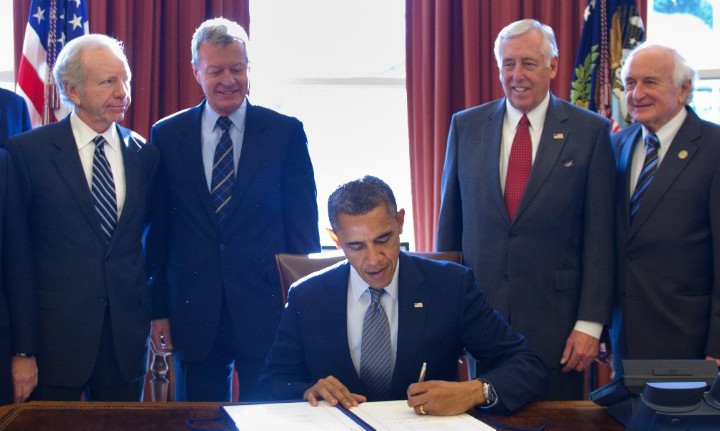Meta OFAC: Appeals And Renewed SDN Requests For Reconsideration
One of the most frustrating aspects of practicing law in the area of U.S. economic sanctions is explaining to clients that there are no mandated time frames in which the United States Department of the Treasury’s Office of Foreign Assets Control (“OFAC) is required to respond to submissions for requests for reconsideration of a party’s status as a Specially Designated National (“SDN”) designation. For those of you not already familiar with OFAC, this is the process by which parties targeted by U.S. sanctions appeal their designations, and is one that can last years before a decision is forthcoming from OFAC.
When facing extensive delays in pursuing administrative reconsiderations through OFAC, some parties have elected to file suit against OFAC. However, as Undersecretary for Terrorism and Financial Intelligence David Cohen stated today at the Center for Strategic and International Studies’s TFI@10 event, they have never lost a case in which an SDN sued OFAC in U.S. District Court for an erroneous designation. In light of this fact, if an SDN loses such a case they are left with two choices: 1) file an appeal of the District Court’s decision; or 2) file a new request for reconsideration and start the process anew. So, what’s an SDN to do?
Well there are a few points to consider here. First, as Undersecretary Cohen has pointed out, OFAC hasn’t lost, and in those questionable cases where the SDN had a chance of winning before the District Court, OFAC settled those cases with delistings. Second, since there is no good precedent on the side of those contesting the SDN designation, an appeal is unlikely to be favorable. Finally, an appeal just adds months and months of waiting time to the process, something that SDNs do not have a particular appetite for.
In light of the foregoing, one might believe a good strategy would be to pursue an appeal of the lower court’s decision while simultaneously filing a new request for reconsideration with OFAC, so that the SDN can get the ball rolling again in the administrative process.
Unfortunately, OFAC doesn’t allow for that. Before entertaining a new request for reconsideration following a decision by a U.S. District Court they seek to make sure that an appeal isn’t in process. If an appeal of the Court’s decision is in process they will deny the new request citing the fact that the appeal may have a bearing on the new request for reconsideration.
Personally, this doesn’t make sense to me. The appeal will deal with review of the lower’s court decision in relation to OFAC’s decision in the prior reconsideration case. It is unclear how the Circuit Court’s opinion will bear on a new process, in which new facts serving as the current basis of designation will have to be reviewed in light of any new information concerning a change in circumstances. It would seem that the matters are unrelated since the case on appeal, although involving the same parties, is based on a different request for reconsideration, involves a different administrative decision, and should involve, at least in part, a new set of facts.
But here’s where it gets crazy. In essence, OFAC’s denial of a new request for reconsideration due to a pending appeal is in and of itself a final agency action, which can be reviewed under the Administrative Procedure Act (“APA”). As such, in theory, you could bring suit against OFAC for denying a request for reconsideration because the lawsuit concerning the request for reconsideration is still pending.
While not quite as intriguing as seeing Ryan Gosling wearing a shirt with a picture of Macaulay Culkin wearing a shirt with a picture of Ryan Gosling wearing a shirt adorned with Macaulay Culkin’s image, this theory is as “meta” as it gets in the sanctions world.
While applying such a theory may sound fun and would probably cause OFAC to shake their head and the Judge assigned to the case to raise an eyebrow, it is probably not the best course of action for the SDN’s reconsideration. Given the length of time it takes to resolve issues through litigation, it’s probably best just to forget the appeal, unless there is a really solid argument that error occurred, and proceed with renewing the reconsideration process as fast as possible. The faster an SDN can present a change in circumstances, the faster the SDN will be removed. The faster the SDN is removed, the happier the SDN and OFAC will be. Unless of course the SDN is Macaulay Culkin. Then this sort of sanctions inception game may be just what he’s looking for.


